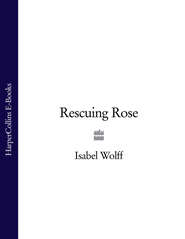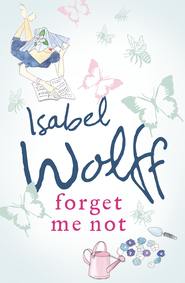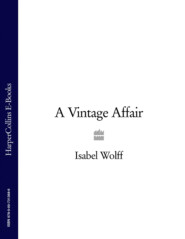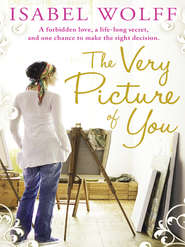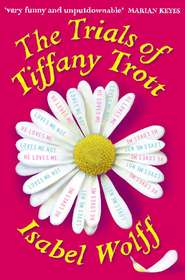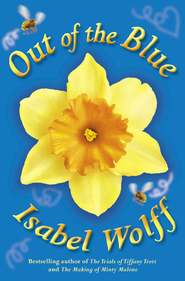По всем вопросам обращайтесь на: info@litportal.ru
(©) 2003-2024.
✖
Ghostwritten
Настройки чтения
Размер шрифта
Высота строк
Поля
I knew that Klara was wrong, but there was no point in disagreeing with her. I took out the tape recorder and placed it on the table in front of her.
She glanced at it anxiously. ‘So what do I do? Just … start talking?’
‘No; I’ll guide the conversation with my questions. I already know quite a bit about you from Vincent.’ I glanced at my notes. ‘I’d like to divide up the interviews more or less chronologically, starting with your early life in Holland.’ Klara nodded. ‘Then we’ll talk about the move to Java, and your memories of the plantation, of your family, and your childhood friends. After that I thought we’d talk about the war. You would have been, what, nine, when Java was occupied?’ She nodded again. ‘Vincent told me that you were interned.’ She didn’t respond. ‘So … I imagine we’ll be talking about that,’ I pressed on. ‘Then we’ll come to the liberation of Java and the turmoil that accompanied the struggle for Indonesian independence. Following that I’d like to talk about Holland, and what it was like going back there.’ At that Klara smiled a grim little smile. ‘Then we’ll come on to your meeting your husband. He was in the British Navy, wasn’t he?’
‘He was. We met in September 1949. His ship, HMS Vanguard, had berthed in Rotterdam for a few days; he had some shore leave and I met him at a dance. I was sixteen, he was nineteen and he began chatting to me.’
‘Could he speak Dutch?’
‘Not a word.’ Klara smiled. ‘Fortunately I spoke good English, otherwise I don’t suppose we’d have “clicked” in the way that we did. Harry told me within a week that he’d fallen in love with me and hoped to marry me. But he had two more years to do in the Navy and I had to finish school; so we got engaged in 1951 and were married the following year.’
‘What a romantic story,’ I said wistfully. ‘I shall love writing about it. We’ll also talk about your life in Cornwall. Does that all sound okay?’
‘It sounds fine,’ Klara replied. ‘Except for one thing.’
‘Yes?’
‘I’ll find it extremely difficult to talk about some of the things that happened during the occupation. I’ll talk about the historical facts, of course, and about the kinds of things that people suffered.’
‘During internment, you mean? In the camps?’
‘Yes. But there are some things … particularly towards the end, in the last camp that we were in, Tjideng. I don’t think I’d be able to find the words to describe what we … what I …’ She inhaled, judderingly.
‘Klara,’ I said gently, ‘you don’t have to talk about anything you don’t want to. Memoirs can take people into quite dark emotional territory. But it’s up to you how far, or how deep, you want to go. You have to feel comfortable with what you say.’
‘Yes.’ She swallowed. ‘I do.’
‘So you’ll see the manuscript before it’s printed, and you can add any further stories or reflections; and I can delete anything that you’re unhappy about, or regret having said.’
‘Really?’
‘Yes. So don’t worry. This is your story. You’ll be in control.’
Klara gave a little sigh of relief. ‘I’d been feeling quite apprehensive, but that does make me feel … better.’
‘I’m glad. I want you to be comfortable. So …’ I put my pad on my lap, then turned off my phone. ‘Are you ready to start?’
Klara took a deep breath and folded her hands in her lap. Her eyes were steady on me. ‘I’m ready.’
As I pressed ‘Record’ I felt the frisson that I always feel when I begin a new memoir.
‘Klara, could you tell me what your earliest memory is?’
FIVE (#ulink_e7793992-39d7-5c21-8724-3a5bb52b8679)
Klara
My earliest memory is of the little tjik-tjaks, dainty beige lizards that used to run across our sitting room walls. I used to stare at them as they zipped about, mesmerised by their miraculous ability to cling to vertical surfaces, and even ceilings, without falling off. They were called tjik-tjaks because that was the noise that they made, and we loved them, because every night, when the lamps were lit, they would eat the mosquitos that might otherwise have given us malaria. Less welcome were the snakes that would sometimes slither across our verandah, especially during the rains. I remember once seeing my mother throw boiling water over a deadly black-and-yellow krait. I stood in the doorway while she did this and, with appalled delight, watched it writhe.
My mother told me, before we left Holland, that we were going to live in a faraway land that was warm and colourful – an ‘earthly Paradise’, I remember she said. To me this description seemed to be true. From our windows we could see mountains that were swathed in jungle that was every shade of green, yet was also filled with the hot pinks and reds of hibiscus, bougainvillea and oleander. These flowers not only looked gorgeous, they attracted butterflies – scarlet and yellow, emerald and black, burnt orange and shimmering blue.
When we first got there, I’d lie in bed, unable to sleep because of all the weird noises of the tropics – the trilling of crickets, which was always especially loud at night, or the sudden shriek of a bird or a boedung, one of the monkeys in the rubber forest that surrounded our house. Sometimes there’d be the howling of pye-dogs, and the strange, guttural cries of the tokeh, large stripy salamanders that sounded like frogs. If you heard the tokeh seven times in a row you could make a wish; so I’d listen to their croaks, and would get upset if I lost count and had to start all over again.
Our house was large, single storey, like most houses in the East Indies, and built of brown brick with a roof made of curved red tiles. It had a circular drive and low, wide steps on which my mother placed pink and white orchids in big pots. All the rooms had high ceilings and ceramic floors, which were polished with slices of coconut tightly wrapped in muslin. I still think of this house as my childhood home.
Around the sides of the house were covered walkways called empers, and behind it was a smaller house called a ‘pavilion’ in which were the kitchen, the gudang or storeroom, plus the washing facilities, bathroom and loo. We had an enormous garden, in which was a banana palm, a mango tree, a cherimoya and, at the end, a big waringin – an Indian fig, with a thick, rippled trunk and long aerial roots. Bats roosted in that tree. At dusk we’d see them spread their cloak-like wings and swoop out.
My mother loved gardening and created wonderful flowerbeds in which she grew roses, gerbera and lilies, and I’d make the petals into dresses for my dolls. The garden was full of exotic birds – hoopoes, golden orioles, bulbuls and humming birds, which hovered over the jasmine like iridescent bees. But my favourite bird was the Java sparrow because it looked like a puffin.
As Dutch colonials we had a privileged life. We employed a gardener, Ismail, who I thought of as extremely old, because his hair was grey, but he was probably only in his forties. We had a maid named Jasmine, who was married to the plantation’s head foreman, Suliman. They were in their mid-thirties but had no children, which caused them great sadness. Because of this, I think, Jasmine was very affectionate to my little brother, Peter, and me.
Jasmine and my mother were always cleaning, because in the tropics mould and mildew take hold very quickly. They’d hang the rugs up in the sun and bang the weevils out of them. They’d take books off the shelves and wipe the covers and give all the clothes a vigorous shake. I remember once my mother being very upset about a favourite dress of hers that Peter, ill with typhus, had thrown up on. She had taken it off and left it in the pavilion: when she went to wash it the following morning, the part he’d been sick on had been eaten away.
Every week the floors had to be disinfected or the insects would move in. If termites showed up we’d have to place the furniture legs in saucers of carbolic acid. Once, we forgot to do this with our piano, and they destroyed it from inside, leaving hillocks of sawdust beneath. And I remember, once, seeing a huge bird spider scuttle across my bedroom floor. It was so large that I could hear its feet clicking on the tiles, a memory that still makes me shudder seventy years later! So I remember this constant battle we all waged against bugs – cockroaches and moths, stick insects and giant centipedes the length of a forearm; creatures that I could never even have imagined back home. But I always thought of the East Indies – never the Netherlands – as home.
Although I’m Dutch, I have almost no childhood memories of Holland. I know about my early years there only from my parents, Anneke and Hans, and from my grandparents, ‘Oma’ and ‘Opa’, who lived near to us in Rotterdam. My grandfather worked on the canals, leading the horses along the towpath as they pulled the barges. I’m sad to say that I can barely remember him, because by the time we’d returned home he had died, in the terrible ‘hunger winter’, before Holland was liberated from the Nazis. I know that Opa was a simple man, with little learning, while Oma was well-educated, well-read, and determined for her daughter to be the same. So my mother went to high school, then on to college where she studied to be a teacher. She met my father ice-skating and they were married within a few months.
My father worked for an electrical engineering company but he was laid off because of the slump. According to my mother, he was in despair, especially as by that time they had two children; but then he got a job as the manager of a rubber plantation in West Java. He went out there first. Three months later my mother, Peter and I followed.
We left for Java on New Year’s Eve. I know this because my mother used to say that it had seemed such an auspicious day for us to be setting off for our new life. But she could never have imagined that the ‘earthly paradise’ to which we were sailing would, within a few years, become a living hell. But to Java we went, taking with us a single crate that contained my parents’ wedding china, their books and our clothes.
Вы ознакомились с фрагментом книги.
Приобретайте полный текст книги у нашего партнера:
Приобретайте полный текст книги у нашего партнера:






